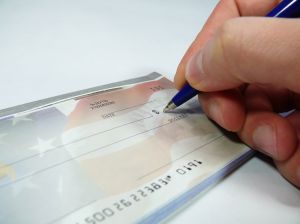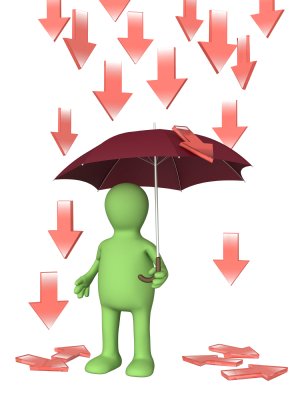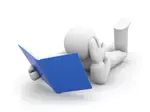- Essential Bookkeeping Habits For Audit Ready Books in Canada
- Self Employed Tax Deductions
- Non-Deductible Business Expense
13 Non-Deductible Business Expenses
Form T2125 For the Sole Proprietor in Canada
By L.Kenway BComm CPB Retired
This is the year you get all your ducks in a row! Start by starting.
Edited May 6, 2024 | Updated January 18, 2024 | Originally published on Bookkeeping-Essentials.com in 2010.
WHAT'S IN THIS ARTICLE
Personal Expenses | Double Dipping | Your Draws | Donations | CRA Interest | Fines | Life Insurance Premiums | Appraisal Fees | Tax Avoidance | Club Dues | Your Labour | Certain Meals | Foreign Ads
NEXT IN SERIES >> Tax Deductions with Limitations and Restrictions
As a self-employed business owner in Canada, you have a tax planning opportunity to reduce your taxes through some favorable tax rules and income calculations. Your bookkeeper or accountant should identify and analyze these tax sensitive transactions.
 A common mistake self-employed business owners make are to claim expenses that are not deductible. During an audit, CRA looks for this.
A common mistake self-employed business owners make are to claim expenses that are not deductible. During an audit, CRA looks for this.By knowing what is tax deductible on Form T2125 Statement of Business or Professional Activities, you can reduce your taxes if you create the habit of collecting your paperwork for these items throughout the year ... so you don't lose any legal deductions.
It's just as important to know what your non-deductible business expenses are. A common mistake many self-employed sole proprietors make is to claim expenses that are not deductible. If the CRA auditor comes calling, they can reassess your tax return and penalize you for failing to report income.
What! Why? Claiming non-deductible business expenses has the net effect of under reporting your business income.
The List of Non-Deductible Business Expenses
Here is a breakdown of thirteen items that are never tax deductible. Being proactive will avoid reassessments of ineligible expenses during a tax audit.
1. Claiming personal expenses
 Personal expenditures are never tax deductible.
Personal expenditures are never tax deductible.I put this item first on this tax deduction checklist because sometimes the line can get blurred between business and personal, especially if you work from your home.
Two things to remember:
1. Everyday living expenses
Everyday living expensesrelated to providing support for you or your family are never deductible. This means your spouse can't fill up her car with gas or buy household groceries on the company credit card; and you can't treat your friends for lunch on the company credit card either.
Sorry but that would also be a no to clothing purchases, school supplies for your kids, laptop for school, your dog or cat that keeps you company at work, the snack you had at Starbucks while working from your laptop or any snacks you bring to nosh on at work ... these are all examples of personal expenses and are non-deductible for business purposes.
2. Use of business property
If you or your family members make use of business property, or consume business supplies for non-business reasons, an adjustment must be made to remove the expenses from your business accounts by coding it to your Owner's Draw account.
For example, if you purchased property or goods for your business, like a computer, office supplies, or food and you or your family used them for personal use, the personal use portion is not considered a business expense and is not deductible.
Same goes for services purchased for your business like home maintenance, your business internet connection or home phone line for your business, the personal use consumption by your or your family is not considered a business expense and is not deductible.
AUDIT READY
Your family home should have its own computers, internet connection and phone service separate from the business.
CRA lets you write-off the estimated business portion (be reasonable) of any purchases used by your business but your family's consumption such a computer or office supplies may not be written-off .
2. Double dipping of GST HST input tax credits
You cannot deduct the goods and services input tax credit as you have already claimed this portion of the expense on your GST return form GST34-2 E.
This rule applies to all rebates, grants or assistance including reimbursement for repair costs covered by your insurance policy. Only the net of the GST/HST expense figure/amount can be claimed ... your rule of thumb here is that if you are going to be reimbursed or have been reimbursed, it is not a tax deduction.
AUDIT READY
If the rebate, grant or assistance cannot be applied to a specific expense, report it under “Other income” line 8230 Part 3C of form T2125.
Develop the discipline to pay yourself on a schedule. It's an excellent habit to form.
3. Draws paid to yourself
 Draw money from your business by paying yourself at regular predetermined intervals.
Draw money from your business by paying yourself at regular predetermined intervals.It is a common small business mistake to record payments to yourself as an expense. Draws (sometimes referred to incorrectly as salary or wages) paid to yourself or partner(s) are not a tax deductible business expense.
This item does not pertain to how to pay owner-managers of incorporated businesses. Remember this checklist is about sole proprietors.
Remember, claiming payments to yourself has the net effect of under reporting your business income. During an audit, the CRA auditor can reassess your tax return and penalize you for failing to report your income.
AUDIT READY
Learn how to pay yourself as a business owner so your payments to yourself are not taxed as income.
When planning your owner's draw from the business, do NOT plan to take excess cash. Instead, plan not to exceed your net profit ... otherwise you will not have the funds to pay your income taxes when you file your return ... or you may be spending funds that were collected in trust. You really don't want to go down that rabbit hole. Please don't assume you have enough input tax credits (ITCs) to offset the GST HST payment owing.
BEST PRACTICE HABIT
Self Employment Taxes
Self employment taxes also need to be front and centre if you are a small business owner in Canada. You need to take care of your personal financial obligations so you can be there for your business. A best business practice is to make sure you put enough money aside to pay these pesky self-employment taxes as well as your quarterly tax installments.
Self employment taxes are calculated on Schedule 8 of your T1. Your tax instalment requirements can be found on your prior year Notice of Assessment. If you aren't making enough yet, you will not be required to make quarterly tax installments.
I recommend automatically transferring a minimum of 15% of your net income each month to a separate bank account at a completely different bank with no debit card privileges to take away the temptation to spend the money. Pick an online bank (like EQ Bank) as they usually pays better interest than the big five banks.
If you aren't strong enough to avoid that temptation, remit the amount each month to CRA as a tax installment. Your total tax bill for the year may not be covered, but it will certainly soften the blow.
How to Pay Yourself as a Business Owner
This is for Sole Proprietors
Often when you are just starting out in business, the question arises, "How do you pay a sole proprietor?". It's a good question.
Unlike owner / managers of Canadian controlled private corporations (CCPC), you are not employees. Employees are on the payroll. Source deductions / payroll taxes must be remitted on schedule; T4s must be issued.
You deserve to be paid for working in your business. So remember, a best practice to begin right from the start is to ... PAY YOURSELF ... Sorry for raising my voice. :-(
Sidebar: I like to reverse the profit and loss equation introduced in Mike Michalowicz's Profit First book: Sales - Profit = Expenses. This flip of the equation pays yourself a living wage and forces you to run your business efficiently on the remaining cash flow.
When you pay yourself as a self-employed business owner, you are taking an owner's draw. Owner's draw are not taxable therefore they are a non-deductible business expense.
AUDIT READY
Paying yourself on a regular schedule takes discipline and is a good habit to form. It allows you to continue feeling the joy of living pay cheque to pay cheque! :O)
The best way for the self employed person to draw a "pay cheque" ... and provide the all important audit trail is to setup online regular draws twice a month to go directly to your personal account.
You could also just write a cheque to yourself (payee = your name not cash) if you are not into electronic transactions.
Make sure it's enough to meet your basic needs (not wants at this stage!) to avoid continually dipping into the business account.
You really want to make sure you have the audit trail in place for these transactions. Why?
In the event of a lifestyle audit, you do not want the tax assessor to look at those cash deposits to your personal bank account and record them as business income ... all because you can't prove they were draws from your business. That's why I prefer electronic transfers.
The bookkeeping entry you will record in your books for each personal draw (pay cheque) to yourself is:
DEBIT Owner's Draw (in the equity section of your chart of accounts)
CREDIT Bank (in the current asset section of your chart of accounts)
Learn how you are taxed to see where your owner's drawings are reported on your tax return.
4. Donations to charities do not qualify
Make charitable donations in your personal name and claim them on the appropriate line 34900 of your income tax return NOT on form T2125 … unless they were for advertising.
The same applies for political contributions - report them on line 40900 if federal or on the appropriate provincial schedule.
5. CRA interest and penalties
Interest and penalties paid on your income tax, payroll or GST HST filings are not deductible. However, interest expense charged by CRA can be netted against CRA interest income to reduce the income reportable.
When doing your small business taxes and bookkeeping, do not confuse tax deductibility with legitimate accounting expenses.
AUDIT READY
CRA interest and penalties are a valid business expense on your Income Statement ... but should be tracked in a separate account from regular interest expense and finance charges because they are a non-deductible business expense.
Code CRA interest income to this account to ensure you don't miss this allowable business deduction.
6. Other fines and penalties
Since March 22, 2004, most fines and penalties imposed under the law of Canada or a province or a foreign country are no longer tax deductible.
In B.C. this includes penalties from WorkSafe BC as WCB is considered a public body under ITA section 67.6.
AUDIT READY
If they a valid business expense, report them on your Income Statement ... but track in a separate account that clearly distinguishes them as not tax deductible.
If the fine or penalty was related to a personal activity, code them to Owners Draw.
7. Life insurance premiums
 Insurance proceeds are tax free if handled properly.
Insurance proceeds are tax free if handled properly.Life insurance premiums are a non-deductible business expense under the ITA section 18(1)(b) as the proceeds would be received tax free.
AUDIT READY
In "167 Tax Tips For Canadian Small Business", the author Mr. Thompson has a small business tax tip. If you structure your business loan properly, all or a portion of the life insurance premiums may be deductible. The policy must be used as security for a business loan with a Canadian financial institution whose principal business is loaning money to strangers AND the interest on the loan is normally deductible.
A question to ask your accountant before you arrange your affairs this way would be, "Does taking this deduction makes the life insurance proceeds taxable once received ... instead of being tax exempt?"
8. Appraisal fees relating to the sale of property or your business
Appraisal fees relating to the sale of property or the sale of your business are capitalized and not expensed directly.
The same goes for accounting and legal fees pertaining to the purchase of property ... capitalize them ... don't expense them.
Just because they are non-deductible business expenses, doesn't mean you won't get a tax deduction. The tax deduction will flow through to the income statement over a number of years when amortization expense is booked at yearend.
AUDIT READY
If you don't know how to record the bookkeeping entry to capitalize these items, book them to an expense account called "Ask My Accountant". This ensures they will be dealt with properly by accountant at yearend.
9. Transactions made to avoid tax
 You do not have the right to illegally avoid or evade tax.
You do not have the right to illegally avoid or evade tax.The next item on non-deduction business expenses are transactions made solely to avoid tax. Naturally nothing pertaining to these transactions are tax deductible but they might have been if handled above board.
As a taxpayer, you have the right to legally arrange your affairs to pay the least amount of tax but you do not have the right to illegally avoid or evade tax.
If you are suspected of tax avoidance, CRA may challenge some of your business transactions. If the suspected transactions were made solely to avoid tax and were not legitimate business transactions, the CRA can ignore them. Interest on unpaid tax balances will be assessed but no penalties will be charged.
CRA's publication IC88-2 General Anti-Avoidance Rule - Section 245 of the ITA discusses tax avoidance and gives specific examples of what is and is not anti-avoidance.
Once you deliberately understate your taxes, you have crossed the line and committed tax evasion. Tax evasion is a criminal offense and the CRA does prosecute.
Gross negligence (making a false statement or omission on your tax return through “willful blindness”) is assessed very expensive penalties and interest charges. What is willful blindness you ask? Wikipedia describes it as willful ignorance or contrived ignorance.
AUDIT READY
If you are disorganized in your record keeping, it is very likely you are overpaying your taxes due to missed tax deductions and lost receipts. Hiring a bookkeeper to do a task you never get around to actually saves you money in the long term.
In the end, poor bookkeeping practices are very expensive and result in additional expenses and / or losses to your business. It could lead to years of financial problems, headaches and increased monitoring by CRA.
Developing good bookkeeping compliance habits from the start can help ensure that any future tax audits go smoothly. If you are already in business but haven't developed good bookkeeping compliance habits, it's never too late to start!
10. Club memberships and dues
Club memberships and dues in dining, recreational or sporting clubs are not deductible.
AUDIT READY
See meals at the club house after a golf game on tips to have audit ready books. Hint, they must have a genuine business purpose and the receipt must include only the meal which clearly itemizes the meals ordered.
11. Your own labour
You are not allowed to deduct your own labor related to maintenance and repair to capital property. This is a big NO-NO!
AUDIT READY
You can deduct the cost of the materials for minor repairs or maintenance for business property if it is not reimbursed by your business insurance policy. Hired labour costs are deductible.
12. Meals eaten during an ordinary business day where no business meeting was conducted
 Sorry meals at your desk while working are never deductible.
Sorry meals at your desk while working are never deductible.This non-deductible business expense is frequently audited. Meals eaten during an ordinary business day where no business meeting was conducted are not deductible.
As mentioned at the start of this article, the snack you had at Tim Horton's while working from your laptop or any snacks you brought to nosh on at work are examples of personal expenses that are not tax deductible.
Bicycle couriers and rickshaw drivers have a different set of rules for daily food purchased as fuel to keep going.
AUDIT READY
Meal and entertainment expenses fall into three categories. Which category depends upon the purpose of the meal or event. They must also be reasonable not lavish and for the purpose of earning business income.
- 100% deductible
- 50% deductible
- Never deductible
Learn more about the meal and entertainment deductibility rules.
13. Advertising with foreign broadcasters
Advertising with foreign broadcasters that have mainly a Canadian market is a non-deductible business expense.
AUDIT READY
Plan your advertising expenses around allowable advertising expenditures.












